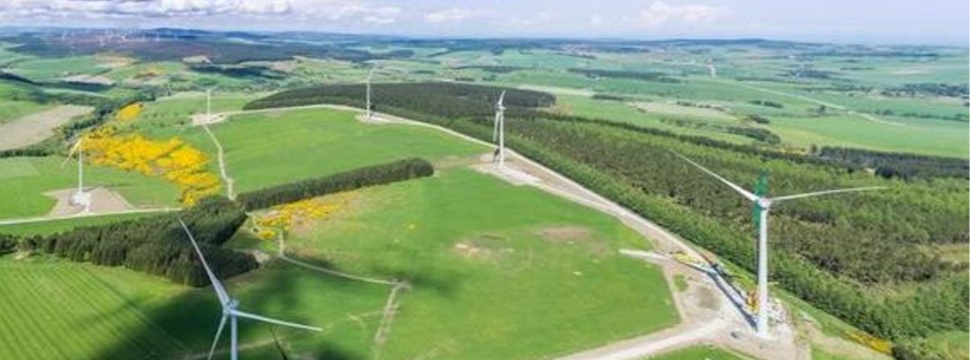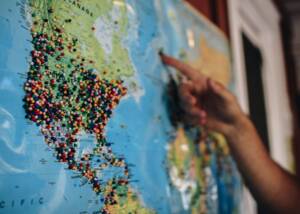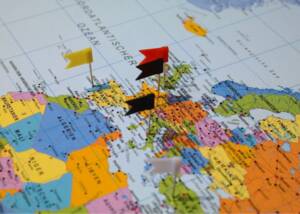Sustainability: Part of the tradition and driver of innovation
News General news
In the media, sustainability as a buzzword can be found everywhere. The forestry invented the term and the paper industry cultivated it. At Koehler, sustainability is part of the corporate strategy and the secret to success.

‘The greatest threat to our planet is the belief that someone else will save it’, said British polar explorer Robert Swan. Nowadays, taking responsibility and showing initiative are qualities that are more important than ever before. But they are also fundamental qualities for being successful in business, and the Koehler Group has now enjoyed success for 213 years. Challenges and courageous decisions have shaped Koehler’s history, but one thing has remained the same: at Koehler, the family-owned company located in the Rench valley, sustainability plays a decisive role.
At Koehler, sustainability cannot be separated from tradition and innovation. The tradition of the company, which is now in its eighth generation of family management, forms the basis on which innovations can be created, which in turn foster sustainable development. The new production line 8 is an outstanding example of this. Without the courage shown by the current company management around Kai Furler, but also by his father and his uncle Klaus and Wolfgang Furler, the project would not have been realized. Hardly any family business of Koehler Group’s size can manage an investment of 300 million euros. Even Koehler can only do so because it has been managed sustainably in the past.
But sustainability at Koehler is not limited to the way in which the company does business, but also influences every aspect of its thinking and actions. Particularly in the paper industry, which in the past has not always worked towards the responsible use of resources, Koehler is an example of how things can be improved.
Resources, such as water, are used responsibly. The pulp used to produce virgin fiber paper comes from certified sustainable and controlled forestry sources. Through continuous internal improvement processes, all employees at Koehler work together to save resources, streamline processes and optimize workflows. In many areas, the company has thus become the benchmark for the industry.
Koehler responded to the challenge of high energy demands as early as 2012 by founding Koehler Renewable Energy. This company plans and operates biomass combined heat and power plants, wind farms, hydroelectric power plants and photovoltaic systems. The Kehl mill, where production line 8 was built, is almost fully equipped with electricity and steam from the neighbouring biomass combined heat and power plant. Only peak loads are covered by the external grid.
At a time when the political decision is being made to phase out coal-fired power generation, Koehler is also working on actively promoting the decarbonization of its two coal-fired power plants in Oberkirch and Greiz. By doing so, Koehler is contributing to the energy turnaround in Germany.
Another important component is logistics. Koehler shifts much of this to rail and waterways, and the Rhine harbor near the Oberkirch and Kehl mills encourages the company to do so. By building an onsite precipitated calcium carbonate (PCC) plant at the Kehl mill, Koehler has not only greatly reduced truck traffic, but the plant also binds the CO2 emitted by the neighbouring biomass combined heat and power plant with milk of lime to produce PCC, which is used as a filler in the production of paper and coating compounds.
In Greiz, in the state of Thuringia, Koehler produces paper based on 100 percent secondary fibers. Whereas the mention of recycled paper conjures the image of grey exercise books, Koehler produces high quality paper in bright colors, which have been awarded the ‘Blue Angel’ eco-label.
Sustainability is also a top priority for products in the virgin fiber sector. An expression of this is, for example, the Blue4est® thermal paper, a truly innovative product because it doesn‘t contain any thermosensitive chemicals and is suitable for direct food contact. The new paper produced on production line 8 will also be suitable for direct food contact. The aim is to produce paper for sustainable packaging solutions in all industries.
The products in the NexFlex® line represent the product portfolio of the new flexible packaging paper division. In addition to one-sided coated and uncoated machine-glazed paper, customers can also obtain paper with functional coatings. Koehler NexPlus® paper will replac e plastics in many applications in primary and secondary packaging. A Life Cycle Assessment (LCA) commissioned by Koehler has shown that certain products made from this paper have a more than 60 percent lower CO2 footprint than conventional plastic products over their entire life cycle, from raw material to recycling. Other influencing factors were also considered and rated significantly more positively for paper than for plastic. Further LCA studies are planned.
Koehler is consistently pursuing the path of assuming responsibility, making courageous decisions, developing innovative products and thus contributing to meeting global challenges.










